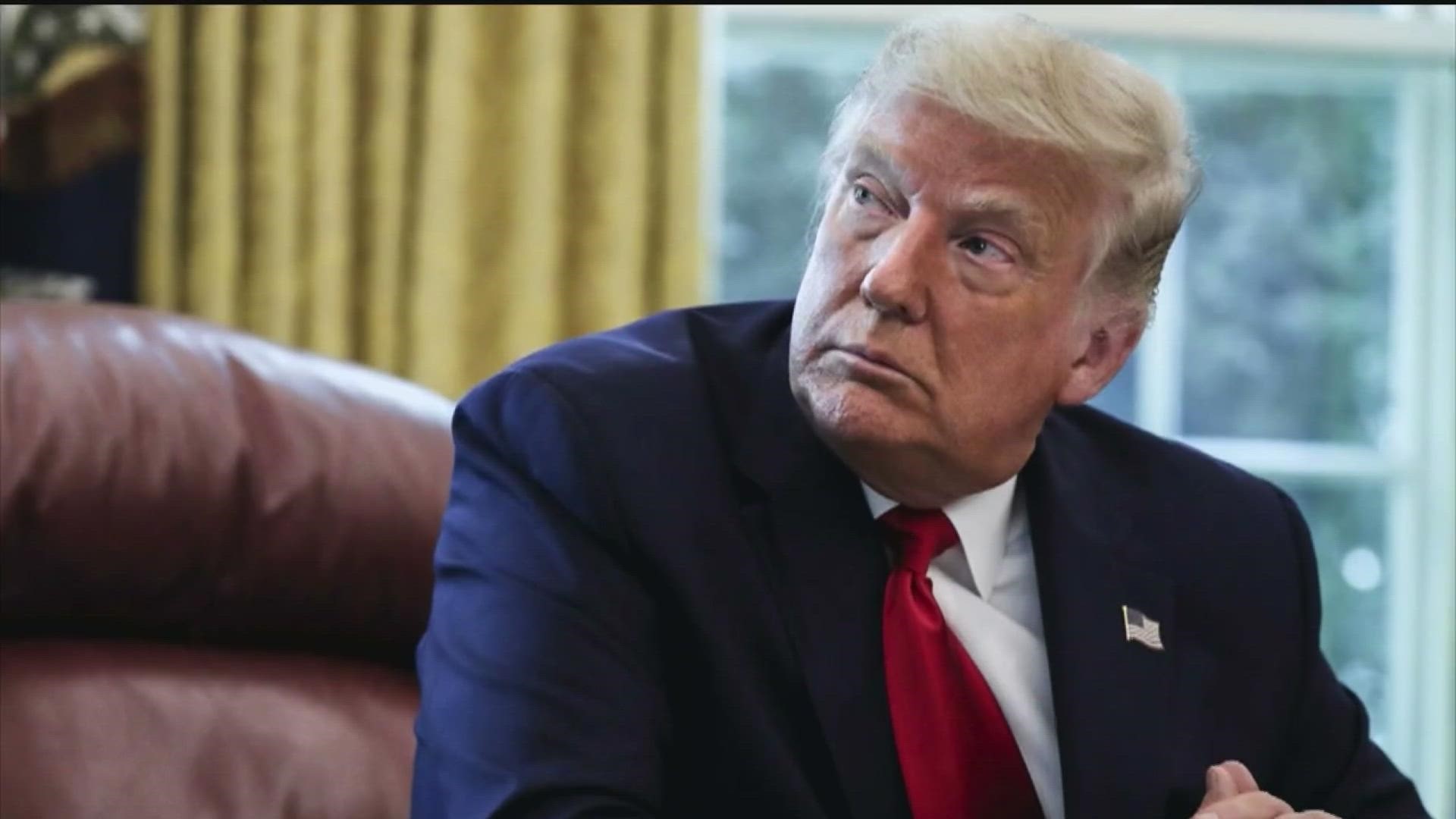ATLANTA — A coalition of media organizations is appealing to the Georgia Supreme Court for a full release of the report from a special purpose grand jury that investigated efforts by former President Trump and his allies to interfere in the 2020 election in Georgia.
11Alive and its parent company, TEGNA, are among the news outlets who are part of the appeal.
The report was partially released last week, with Judge Robert C. I. McBurney ordering only three sections made public out of concerns for the due process rights of anyone named in the report.
In their appeal, the media coalition is now arguing that McBurney erred "in concluding that the Court could set aside the mandatory publication requirements... based on alleged 'constitutionally protected due process rights' when only reputational interests were at issue."
The partial release includes Section VIII where the special purpose grand jury says it "believes that perjury may have been committed by one or more witnesses testifying before it," as well as the report's introduction and conclusion.
The collective of media organizations had previously argued for its full release. They are now appealing the decision to release it in part, arguing in a filing submitted Friday that, "The Superior Court’s Order prevented the public and press from reading the full Report even though it addresses a subject of paramount public concern to this state and nation: possible wrongdoing in connection with the U.S. Presidential election of 2020, including possible wrongdoing by the then sitting U.S. President."
The filing calls the justification for the order of just a partial release of the report "flawed."
Targeting McBurney's focus on due process rights, the media coalition argues "special purpose grand juries have become judicial bodies that merely 'recommend' the bringing of criminal charges."
"The reports they issue do not and cannot deprive any individual of a liberty or property interest cognizable under the due process clauses of the United States or Georgia Constitution," the filing goes on to say.
McBurney, in his order, also had determined he was not compelled to release the full report as a court record - as argued by the media organizations.
He wrote: "That the report, per statutory process, incidentally passed through the Court's hands and does not make it an official record of the court any more so than a wiretap application or a search warrant affidavit. All three documents - report, application, and affidavit - are parts of criminal investigative processes, not court proceedings."
Appealing to the state Supreme Court, the media collective now argues McBurney erred in that determination.
"As an arm of the Superior Court, the Report memorialized the 'adjudicative action' of the special purpose grand jury," the filing states. "...As such, the “adjudicative” decision reached by the special purpose grand jury became a court record as soon as it was rendered and delivered to the Superior Court."
It's not yet clear if and when the state Supreme Court will take up the appeal.

